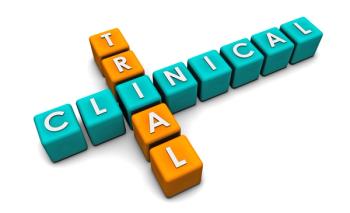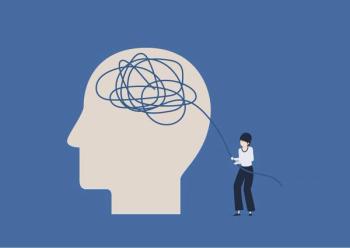
- Vol 39, Issue 11
Is Science Drifting Into the Dark Ages?
"The cog in the wheel of treatment today is misinformation and lack of trust in the institutions of medicine, peer-reviewed published literature, the CDC, and pharmaceutical research."
With each passing year, to my confusion and dismay, the edifice of science that I was drawn to as a young boy—and in which I remain immersed and inspired—feels to be slowly dismantling. During my elementary school years, my parents fostered and supported my love for the natural sciences. Christmas presents included a microscope, a chemistry set, a Radio Shack kit to build electronic devices, camping supplies, and scuba gear along with a certification course . In high school, I took every science class that was available, and I loved mathematics. Yes, I am a proud science nerd through and through.
My passion to understand the natural world exploded as I pursued my BS in biochemistry at the University of Massachusetts Amherst, when that branch of science was in its youth. The wide-ranging courses each opened a new door to a vast treasure trove of knowledge that has advanced on every front over these past 4 decades: chemistry, biochemistry, molecular biology, calculus, physics, microbiology, zoology, oceanography, and so much more. I will never forget the excitement from my organic chemistry class when I learned the molecular structure of Styrofoam. Ultimately, I chose the path of medicine, and I became a clinical adult psychiatrist. The unifying thread throughout my journey has been the scientific method and the strong foundation of reproducible knowledge that is constructed over millennium through objective study, experiments, and experience.
Paradigm-Changing Discoveries
One of the remarkable qualities of Homo sapiens is how quickly we adapt to advancing technologies and how just as quickly we forget what life was like before their existence. There are many paradigm-changing discoveries that originally humbled and excited us that we now tend to take for granted (
These transformative discoveries are given little thought, much like our entitled expectation that the sun should rise and set every day and that our planet should be able to always provide for our increasing consumption of food and energy.
Due to many of those scientific advances, quality of life increased, and the average life expectancy in the United States increased from aged 39 years in 1860 to 79 years in 2020 (
Two items stand out as likely having made the largest contribution in the doubling of our life expectancy: vaccines and antibiotics, both of which emerged from centuries of good science.
Historical Perspective
The Age of Sail was the time period from the mid-16th through mid-19th century, during which sailing ships were dominant for exploration, global trade, and warfare. Because expeditions often lasted many months and fruit and vegetables quickly spoiled, the sailors on these vessels went without. As a result, approximately 50% of all sailors (or 2 million individuals) died due to scurvy.
In 1747, Scotsman James Lind, a Royal Navy surgeon on the ship HMS Salisbury, observed the onset of scurvy after 2 months at sea. Lind had researched the topic and hypothesized that scurvy was due to a dietary deficiency. With scurvy cases on the rise, Lind performed what is believed to be the first randomized clinical trial. He randomly assigned 12 sailors with scurvy into pairs, and all were provided the same food, fluids, and care. Each pair was then given 1 of 6 possible treatments daily: seawater, cider, vinegar, dilute sulfuric acid, plant extracts, or 2 oranges and a lemon. The 2 sailors who received oranges and lemons recovered rapidly, but none of the other 10 sailors improved. Lind published his results in 1753.2 It wasn’t until a year after Lind’s death that the British Admiralty made lemon juice compulsory on all ships in 1795. In 1928, vitamin C deficiency was determined to be the etiology of scurvy.3
Vaccines and COVID-19
Remarkably, over the past 20 years in the United States, there has been an erosion of public opinion and trust that the pharmaceutical industry has applied the best science to develop these vaccines and antibiotics. This phenomenon has become all too apparent by our country’s divisiveness and tribalism during the COVID-19 pandemic, during which a large subset of our population opined the vaccines are malfeasant manipulations by the deep state or camouflaged vehicles to inject dangerous materials into our bodies. Additionally, conspiracy theories claiming that the COVID-19 pandemic was a fabrication for various rogue reasons still abound.
Sadly, the Center for Disease Control became the victim of political attacks. Predictably, the slow but steady accumulation of knowledge and subsequent recommendations was misconstrued as incompetence and misinformation. Pseudo-experts continue to share their inaccurate unscientific opinions and prophesy to vulnerable populations who want to believe them, likely resulting in great harm.
Climate Change
As any good therapist will affirm, denial is a powerful defense. Despite an overwhelming database of peer-reviewed published literature and expert consensus on climate change resulting from human behaviors causing global warming, a large segment of the United States population does not believe climate change is real.
Cautionary publications in the 1990s warned us about the potentially catastrophic consequences to the Earth if the rapidly rising temperature on the planet was left unchecked. An Inconvenient Truth, published in 2006 by former Vice President Al Gore, raised public awareness and created a lot of debate, but eventually the concern diminished. A 2021 article in Academic Medicine4 noted,
“In 2019, an international multidisciplinary Lancet collaboration concluded that climate change poses unacceptable threats to the health of current and future populations worldwide….Climate change is among the greatest public health threats of the 21st century and a defining modifier of the global burden of disease.”
Over the past 5 years, the United States has experienced the beginnings of these climate change impacts and weather patterns: drought, flooding, large forest fires, oppressive heat waves, and more powerful hurricanes. Despite these regularly occurring climate change–related events and virtually unanimous consensus among scientists that human behavior is the primary cause, a significant number of political leaders continue to deny the extensive science of climate change. They simply state that they do not believe it.
Conclusion
The citrus fruit of the 1700s is our COVID-19 vaccine. However, unlike Lind who had limited resources to perform the first randomized clinical trial in medical history, the pharmaceutical industry exceled at designing, performing, analyzing, and reporting the results of extremely well-designed double-blind, placebo-controlled clinical trials. Such has been the case for all the COVID-19 vaccines now available to us. The cog in the wheel of treatment today is misinformation and lack of trust in the institutions of medicine, peer-reviewed published literature, the CDC, and pharmaceutical research. Regrettably, the many snake oil salespeople often win the trust of the vulnerable.
Science is, and will always be, a work in progress. The beauty of science is that it is constructed slowly and steadily on the foundation of all that has been discovered and established by committed individuals during the years, decades, and centuries preceding this moment in time. Thus, science endures despite the hysteria, whims, and selfish agendas that attack and defy it.
Regrettably, history has taught us that the knowledge and dogma of established science does not impact society in a linear fashion. Through the past 2000 years, the tides of changing agendas have moved science back and forth from a luminous ally facilitating tremendous advances and improvements for humanity to the dark recesses of a deep and forbidden cave.
Ideally, science should be apolitical. The knowledge gained should be applied to improve the quality of life of all citizens of the Earth and inform us in the care and health of our planet. If only the policy makers would evolve with the knowledge that science provides to facilitate the health and wellness of our planet, our children, our grandchildren, and all generations to come. It saddens me that this is not currently the case.
Alas, I have no answers or recommendations regarding how to elevate science so it may shine its bright light in the service of our species and our planet. I do have a deep and existential concern that science is drifting into the dark ages.
Dr Miller is Medical Director, Brain Health, Exeter, New Hampshire; Editor in Chief, Psychiatric TimesTM; Staff Psychiatrist, Seacoast Mental Health Center, Exeter; Consulting Psychiatrist, Exeter Hospital, Exeter; Consulting Psychiatrist, Insight Meditation Society, Barre, Massachusetts.
References
1. O’Neill A. Life expectancy (from birth) in the United States, from 1860 to 2020. Statista. June 21, 2022. Accessed October 13, 2022.
2. Lind J. A treatise of the scurvy in three parts. containing an inquiry into the nature, causes and cure of that disease, together with a critical and chronological view of what has been published on the subject. 1753; A. Millar, London. Accessed October 17, 2022.
3. White M. James Lind: the man who helped to cure scurvy with lemons. BBC. October 4, 2016. Accessed October 13, 2022.
4. Goshua A, Gomez J, Erny B, et al.
Articles in this issue
about 3 years ago
Covering the Basics: LGBTQ+ Terminologyabout 3 years ago
The Importance of Avoiding Implicit Bias in Advocating for Patientsabout 3 years ago
Psychiatrist Humility and Patient Empowermentabout 3 years ago
Advances and Challenges in Adult ADHDabout 3 years ago
THE QUEST: Nepal Lets You Reach for the Majesty of the Summitabout 3 years ago
Psychiatric Times™ Conference: Clinical Pearls for Treating MDDNewsletter
Receive trusted psychiatric news, expert analysis, and clinical insights — subscribe today to support your practice and your patients.







